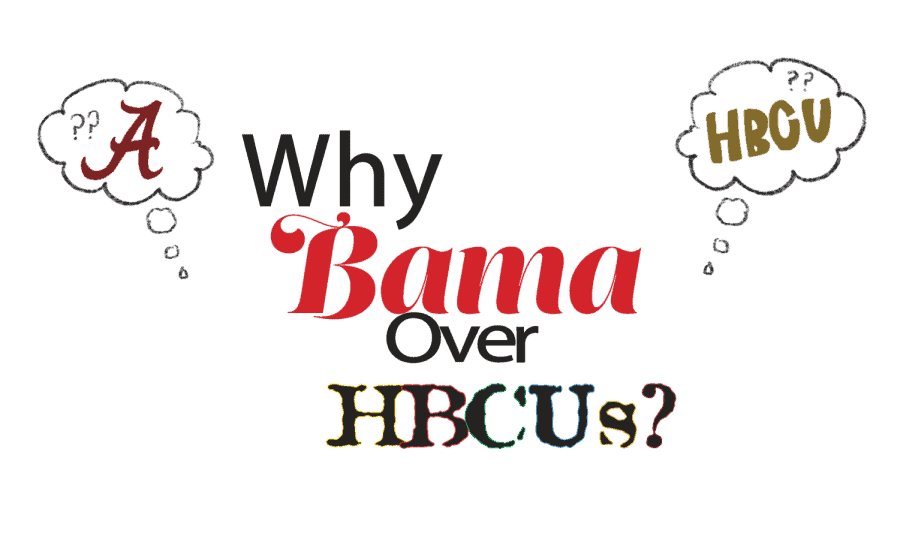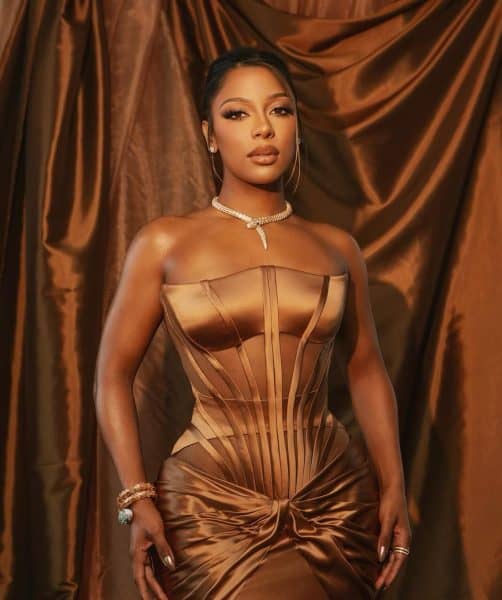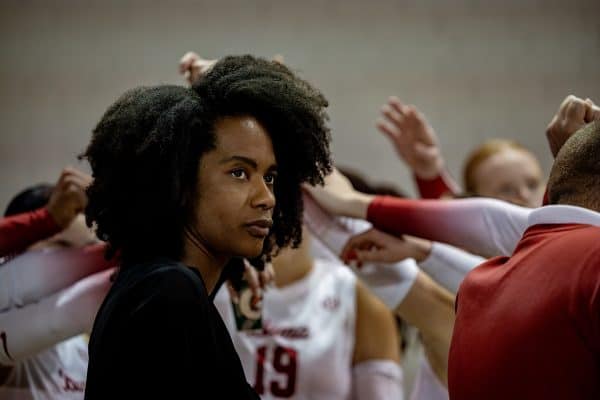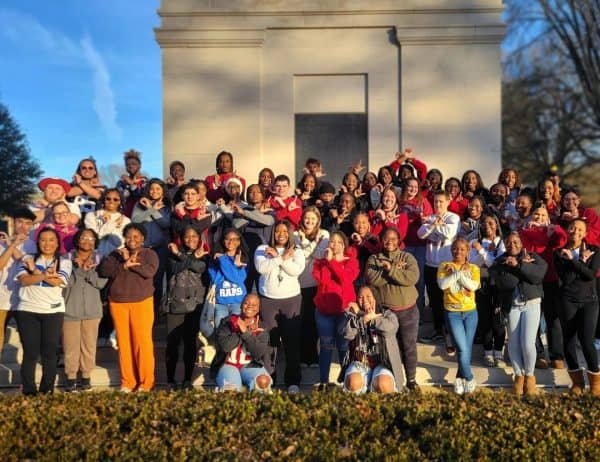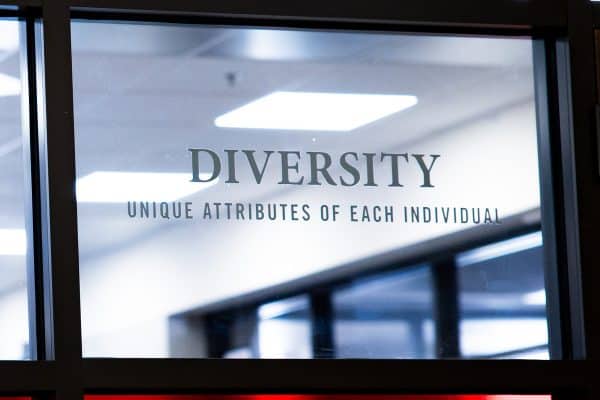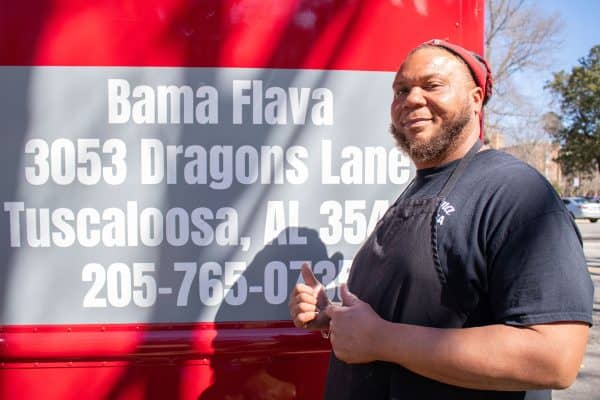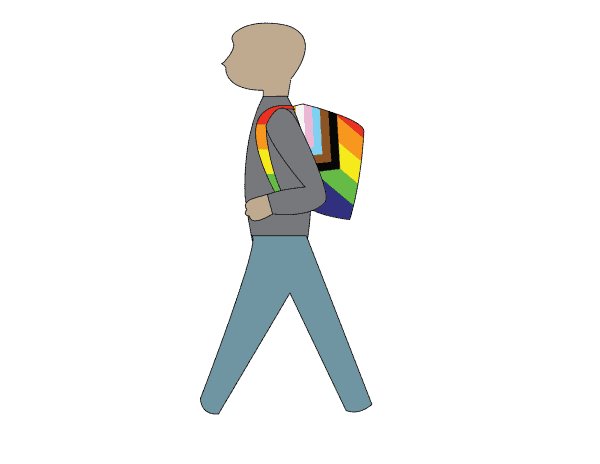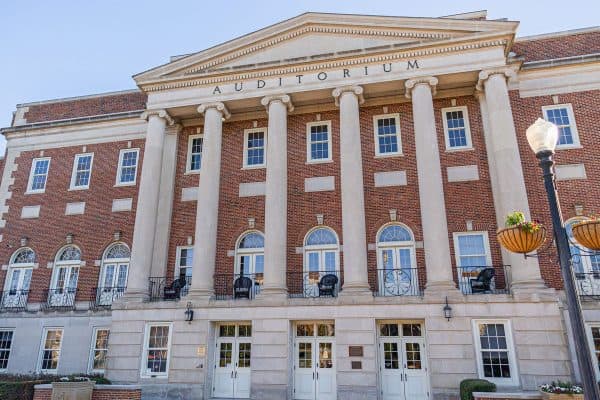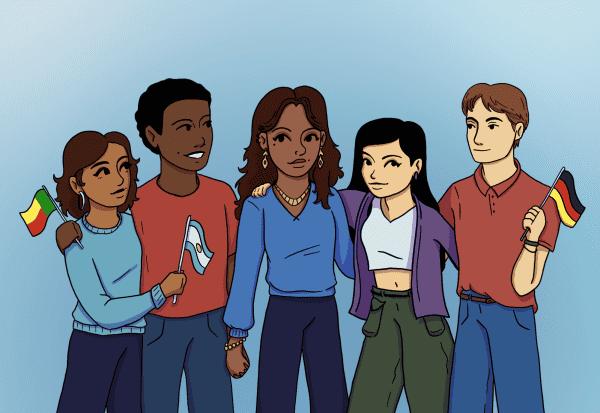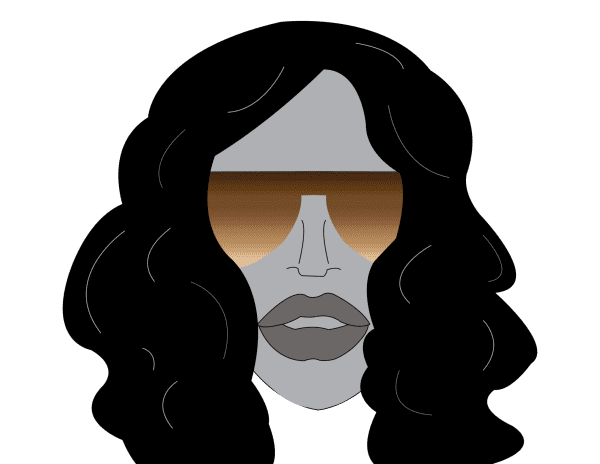Opinion | Black students should be supported wherever they go
October 19, 2022
As a Black woman, I found it interesting that there was so much pressure for me to attend a historically Black university. I did not, of course. Not because I had anything against Historically Black Colleges and Universities. If I did, I would not be writing for a Black student led magazine, would I?
Besides stating the obvious, I had so many friends and family ask me if I was applying to Howard University, Xavier University of Louisiana, Florida A&M University, and the list of Historical Black Colleges and Universities goes on. When I shared that I would be attending The University of Alabama, many were surprised, confused and even upset. Part of me could understand why.
At first, I was dead set on not going to Alabama. I was born and raised in New Orleans. I had heard all the rumors about Alabama being a dangerous place for Black people to live in. At that time, I had already made up my mind that it was not the place for me.
My mother attended The University of Alabama, and to this day she believes she’s the reason I did not want to attend. I have heard her on the phone multiple times saying, “Samantha doesn’t want to go to the University of Alabama because I graduated from there. She knows I want her to go, but you know, she’s in that rebellious teen phase.” I would always roll my eyes knowing my decision about college had nothing to do with being in a rebellious phase.
I will share why I chose to attend The University of Alabama, but first I want to talk about why the pressure exists for so many Black students to attend an HBCU.
I did some research and discovered that many factors play a role in this. First, most HBCUs are underfunded. According to USA Today, when looking at financial percentages, “If the endowments of all 105 HBCUs were added up, they’d still amount to less than 10% of Harvard University’s endowment, which at upward of $30 billion is the wealthiest of any college in the world.” I thought this may be the reason why so many people wanted me to attend an HBCU, to support them financially. As well as getting that “HBCU experience like no other” that countless family friends told me about.
Second, there’s something deeper than an HBCU experience that made people biased towards them, something that wasn’t pleasant to uncover. According to Teen Vogue,“some HBCU students have issues with black students attending [predominantly white institutions] and some PWI students look down on HBCUs, which causes a sort of divide in the black community.” This statement is the reality of so many Black university students, when in reality, many are simply looking for a campus that will make them happy.
Before integration was mandated in American universities, HBCUs were the only option for Black people to get a higher education. This is very meaningful, and I don’t discredit it at all. On the other hand, I also understand that Black men and women now have access to the education their ancestors fought so hard for by attending predominantly white institutions.
What I don’t understand is why people are fighting over which path is better. At the end of the day, Black students are getting their education. These students should go where they will be happy and feel supported for pursuing a college degree.
Like I said earlier, I was born and raised in New Orleans. New Orleans is a majority Black city, and I felt the pressure to attend an HBCU for this reason. At the same time, my mother was set on me touring The University of Alabama. “Sam, you need to have an open mind to my school,” she’d plead. She finally told me the day we’d tour, and I realized I didn’t have a choice in the matter. When your Black momma tells you to do something, you better listen, or else.
To my surprise I saw so many students of color on campus. Although the University is a PWI, it still felt diverse to me. I loved how beautiful the campus looked and was sold on applying there when I toured the College of Communication and Information Sciences, which is my college now.
Nancy Parker Boyd, who was inducted into the 2020 class of C&IS Hall Of Fame inductees, is my role model. She was an award-winning journalist, and my mom’s best friend. Sadly, she died in a plane crash in 2019 while filming a documentary of the pilot Franklin Augustus who also died during impact. Remembering her life and her spirit let me know that The University of Alabama was where I needed to be.
Parker Boyd and my mother are strong, amazing, beautiful, Black women with a degree from The University of Alabama. When I applied and received my acceptance letter from the University, I was ecstatic to attend.
After being accepted, I received an email about a program called Lucy’s Legacy that would allow me to live in John England Jr. Hall as part of a community of women of color. Long story short, I decided to apply and was accepted.
I said my goodbyes to my parents and moved into John England Jr. Hall in August of this year. I thought it would be hard for me to make friends because I only knew one or two people from New Orleans that were also attending the University. I was definitely wrong. Within the first week, I met so many people from Lucy’s Legacy and BRIDGE. I now feel like I have a family, and I have met so many people of different races and backgrounds while attending here.
When it comes to the debate of which is better, PWIs or HBCUs, one is not better than the other. No matter where someone decides to get their education, they should be supported for pursuing college. This means the Black community should be supporting each other, not trying to tear each other down.
I remember the looks of betrayal when I told people I was attending The University of Alabama. I remember the jokes about how they’ll have to deal with the fact that I didn’t choose an HBCU. I’m at the point now where it doesn’t matter to me anymore, I am happy and feel like I belong at The University of Alabama. I don’t feel pressured anymore because I found my community. I know that I found my home away from home, and there’s nothing more I can ask for.

